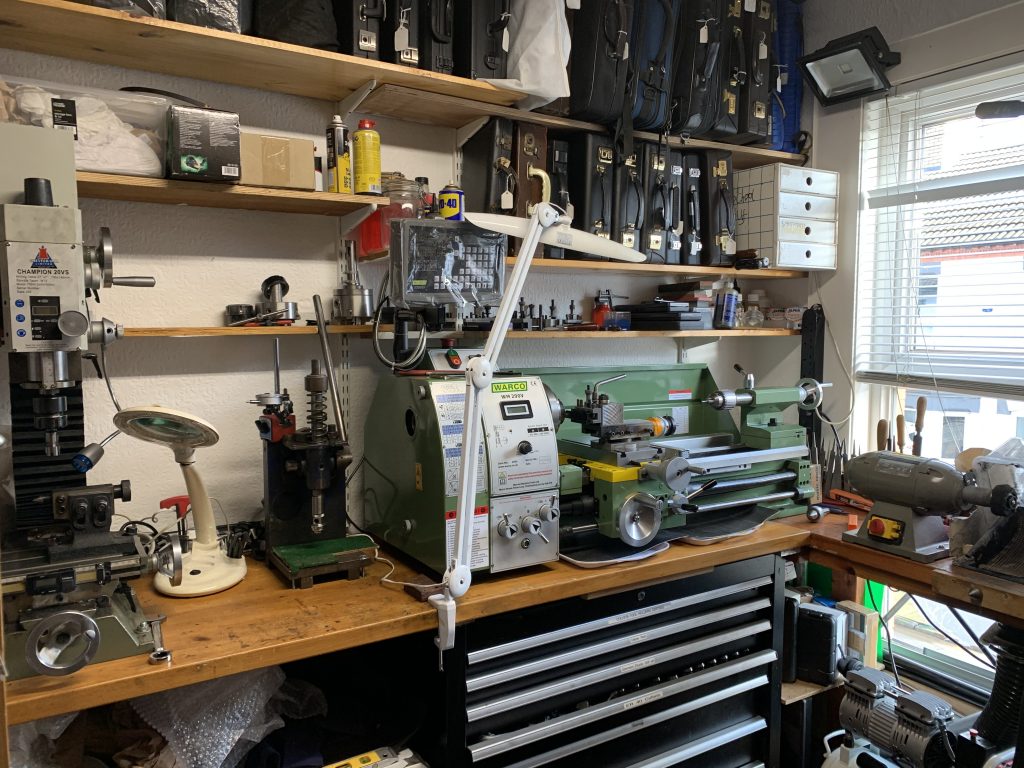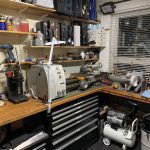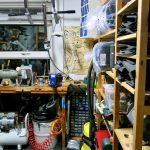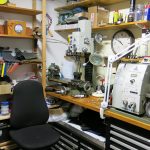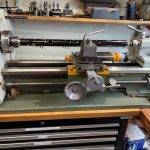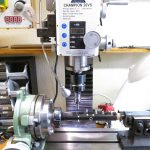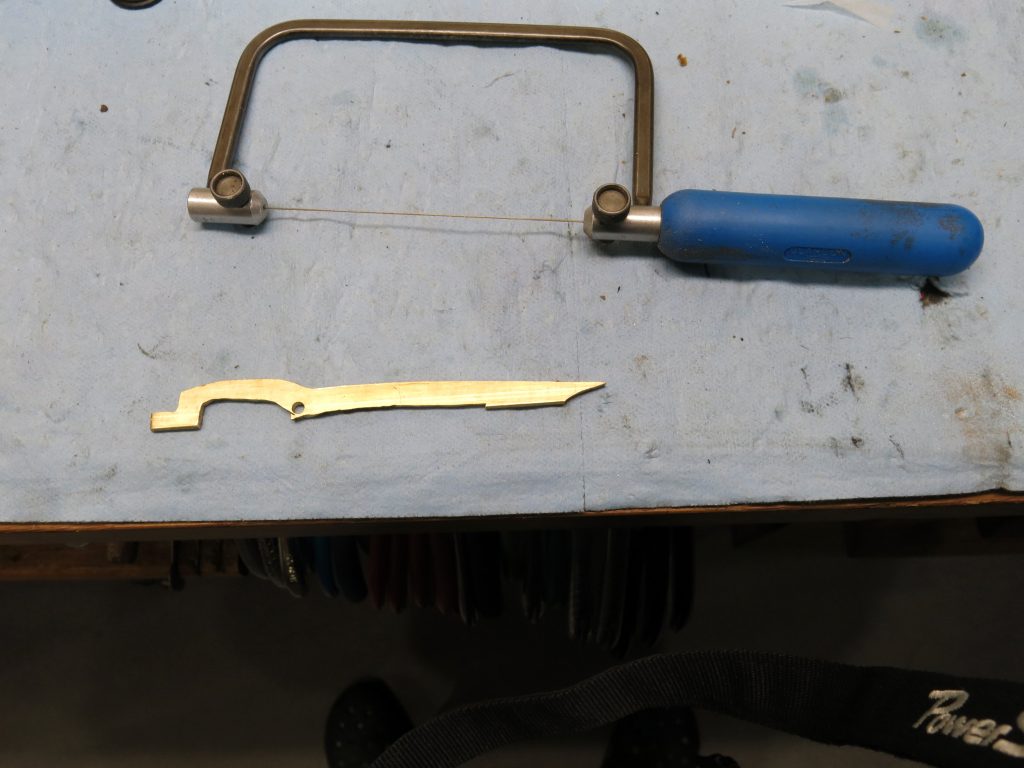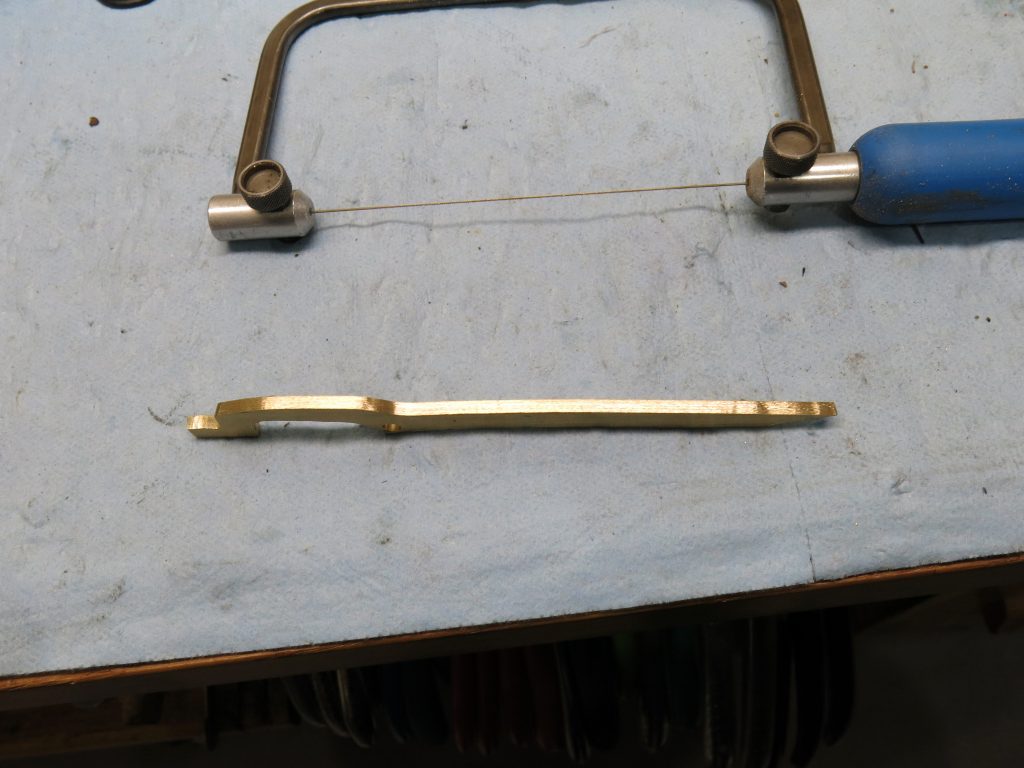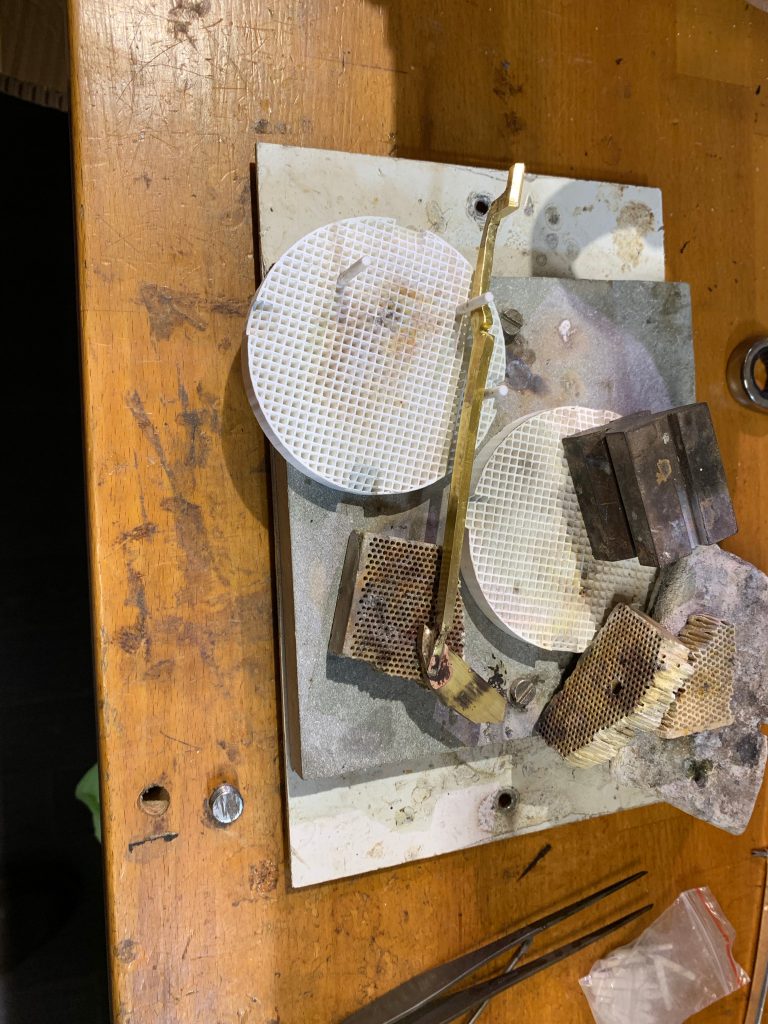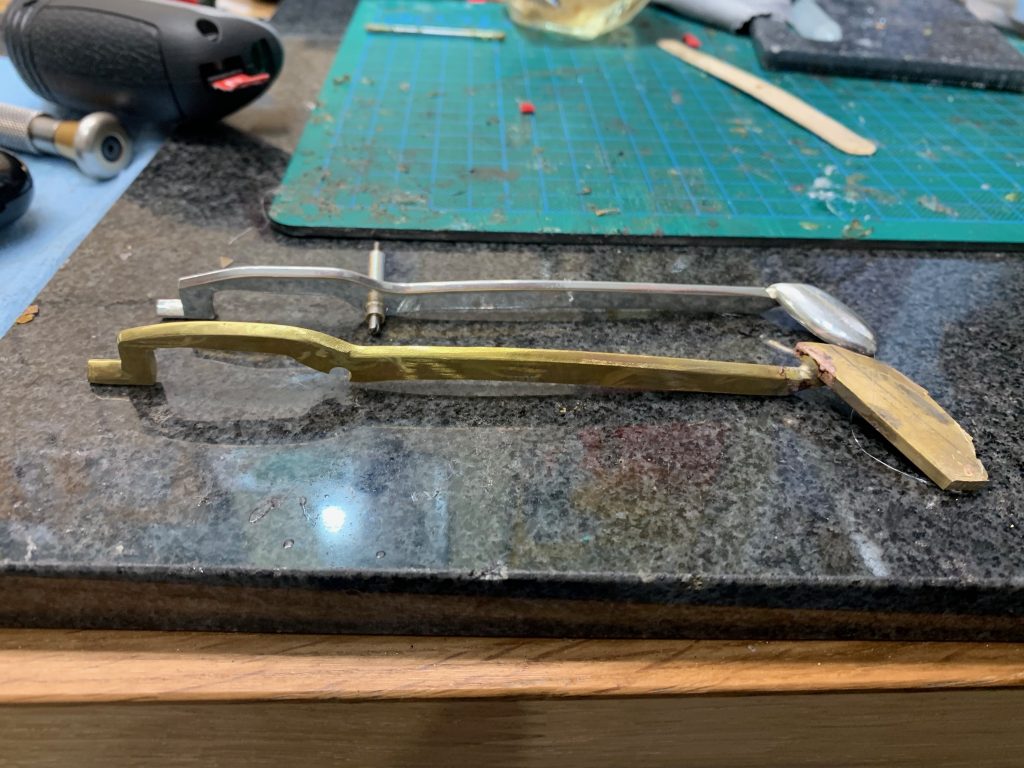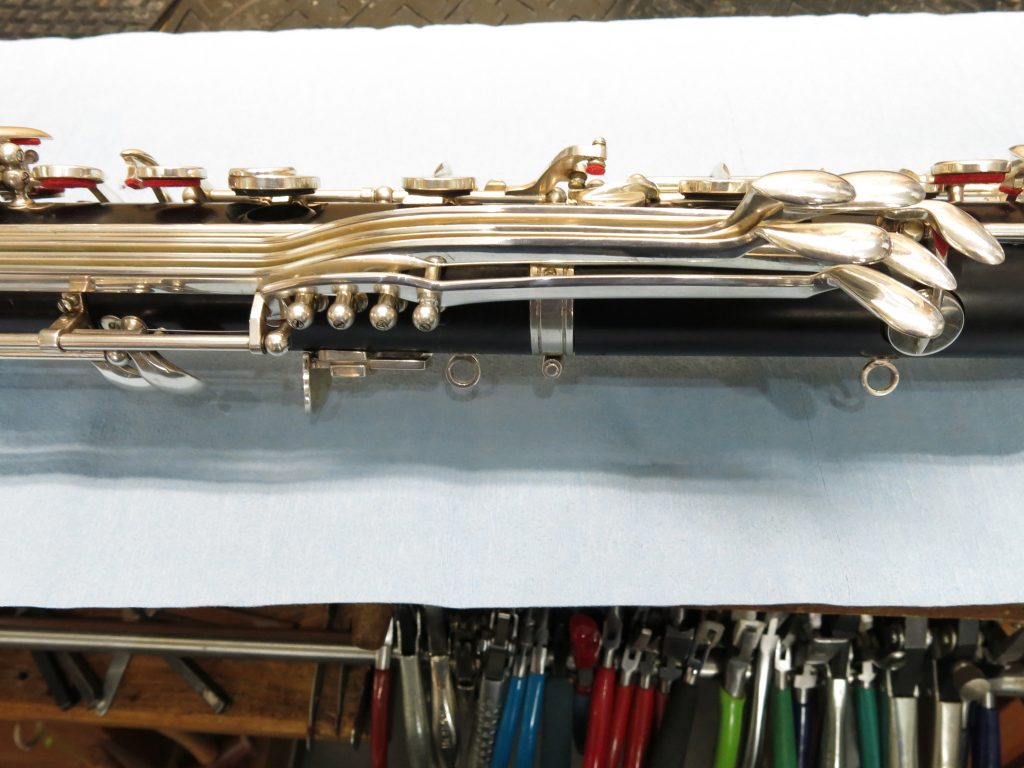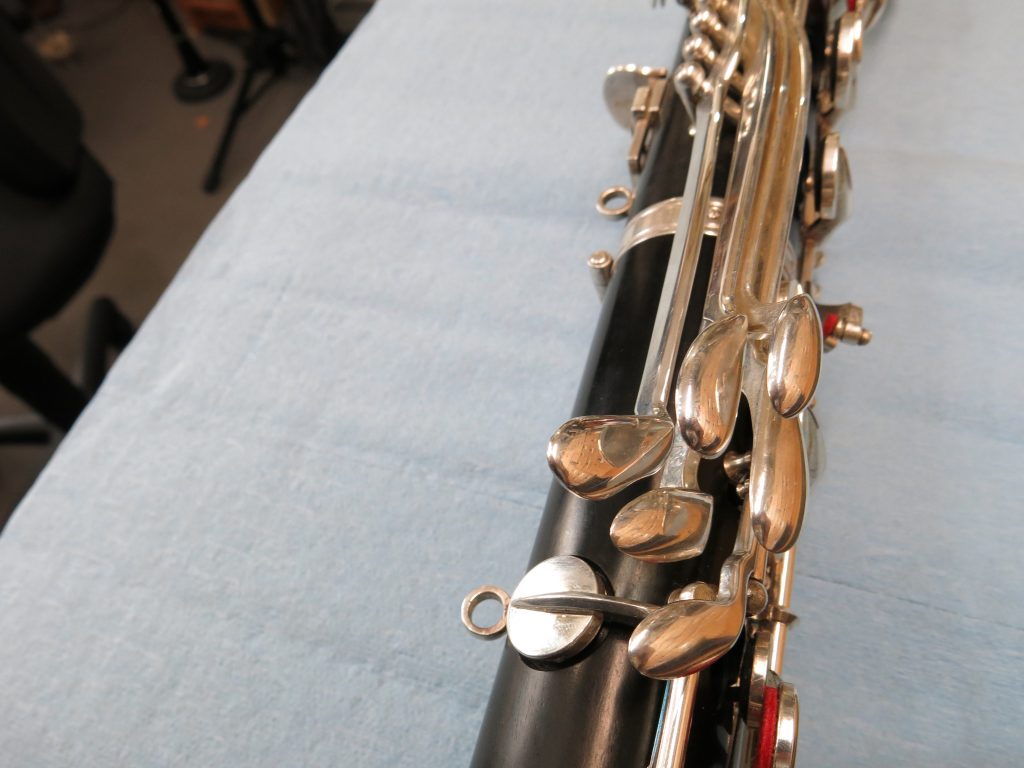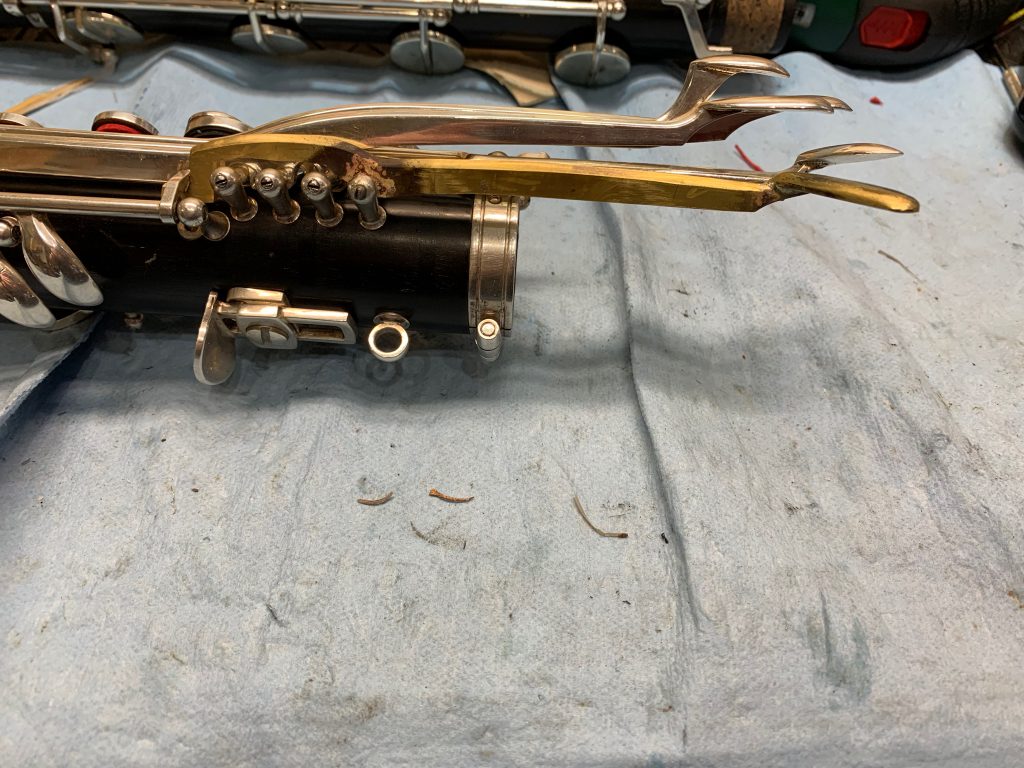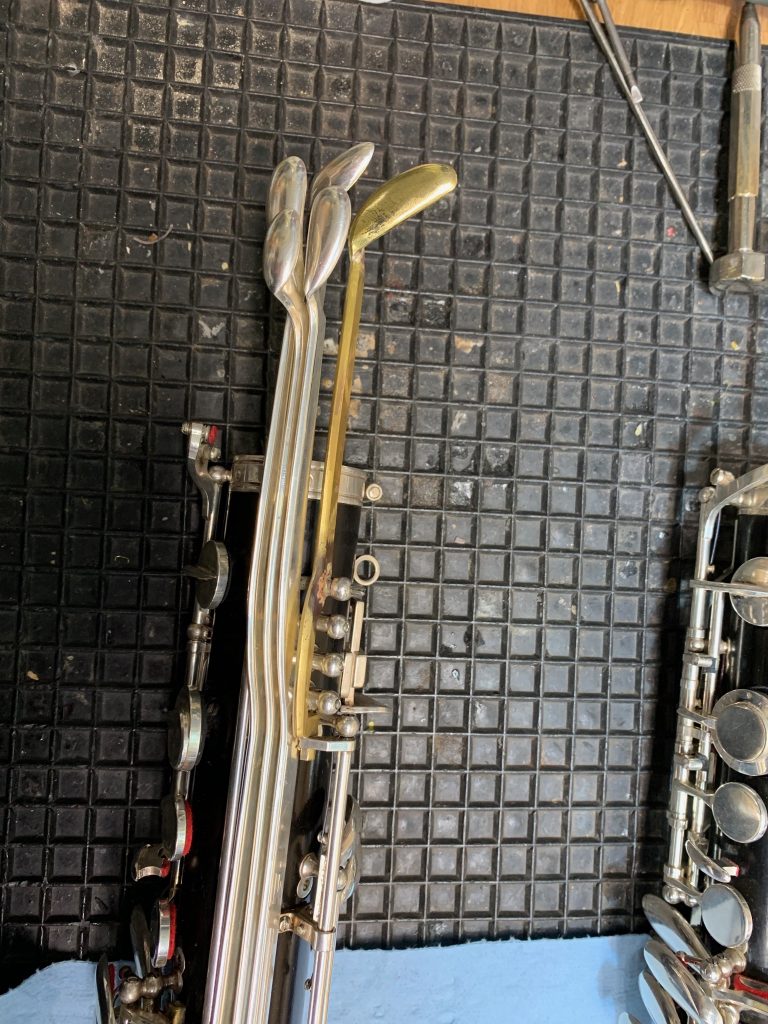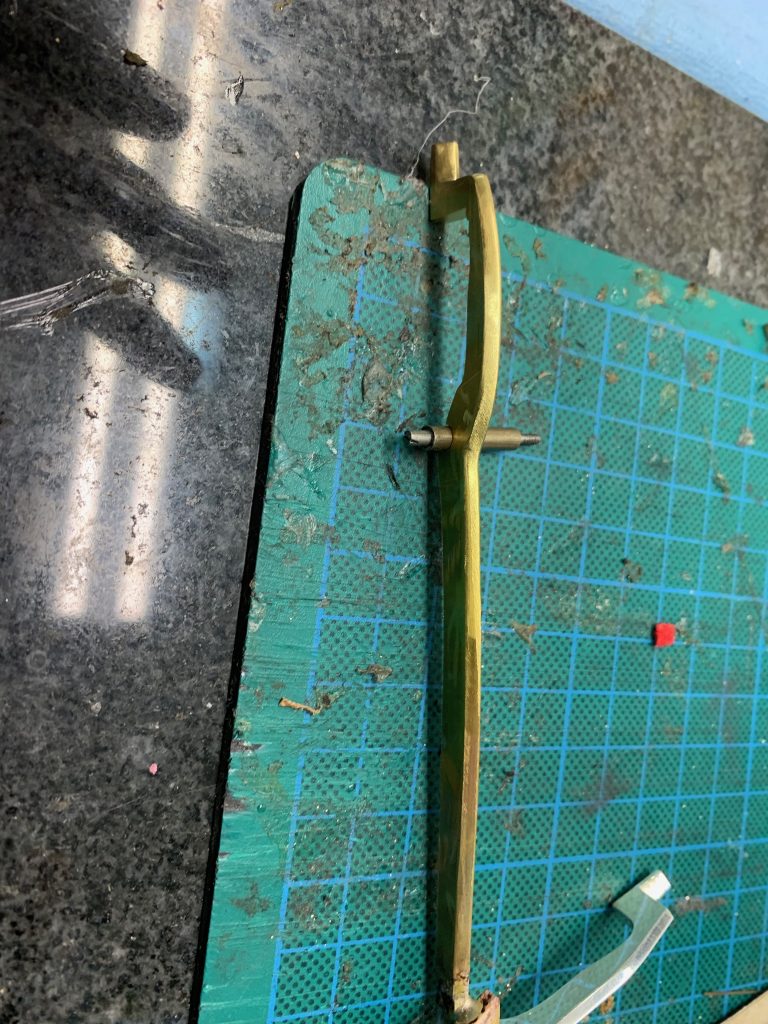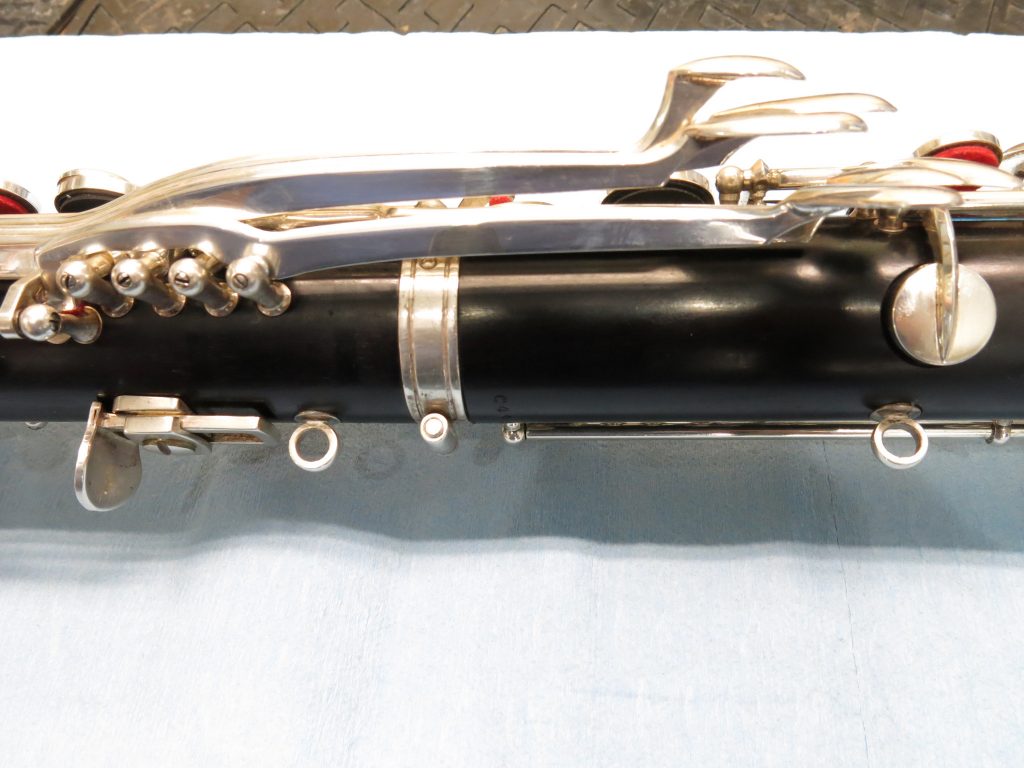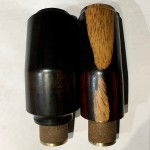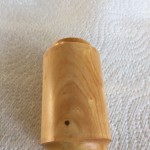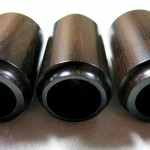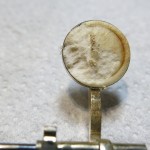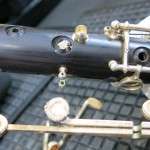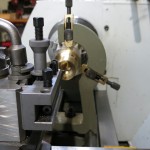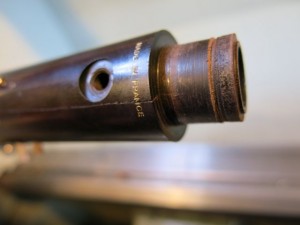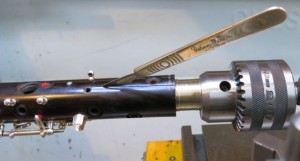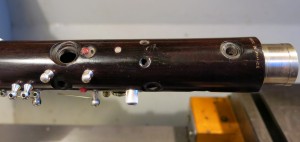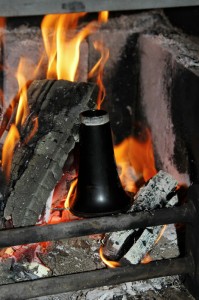
If you are feeling like doing this to your clarinet ……. then it might be time for you to send it to ARCS to find out what you have been missing!
The aim of Andrew Roberts Clarinet Service is to offer the discerning player an instrument that will truly play to its highest potential. The company is based in Liverpool, address details on request.
Showing how good, or bad, the airtight seal of any clarinet has been a problem, until now.
With the arrival of a custom built Magnahelic testing machine at the workshop of Andrew Roberts Clarinet Service, clarinettists can now see for themselves the results of their investment!
The arrival of this testing machine will allow any customer to see the state of their instrument on arrival, and to see the percentage improvement that will result from the service.
Unlike other testing devices, this machine produces a positive air pressure (which closely resembles the players air input) in the sealed clarinet, and will show the degree of leakage in each joint.
Andrew Roberts Clarinet Service (ARCS) now has a re-built machine shop, including a new lathe with DRO and powered cross slide, milling machine, polishing machine, extractors and compressors. This allows an even wider range of customisation and improvements to all clarinets. Do read the recent reviews from previous customers, they speak for themselves.
- Old lathe
- Machine room 2
- Machine room 3
- Re corking the tenon of a bass clarinet
- Tone hole replacement on milling machine
ARCS now has new facilities to offer custom keywork and re-plating on site. The photos show the extension of 3 Buffet bass clarinet keys, including the re-shaping of the thumbrest.
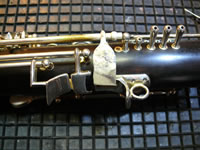 |
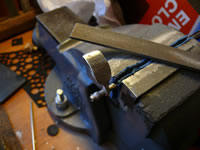 |
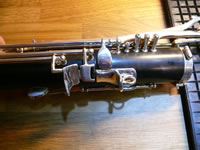 |
Missing a Key? Our bespoke service might be just what you need!
During a recent overhaul of an older Selmer Bass Clarinet the absence of the left hand low D key was causing a problem. Selmer no longer carry stock of key for that model and the original was lost in a house move. By coincidence a second Selmer of the same age came into the workshop and provided the perfect template for a copy to be made see photos below.
 Photo showing the replacement of a tone hole on a B flat clarinet
Photo showing the replacement of a tone hole on a B flat clarinet
With many years of experience working with world class experts, including at production level in the Leblanc factory, ARCS now offers the best available advice and practical help in solving problem notes on your clarinet.
Re-tuning on all of the full range of clarinets, including tone hole re-positioning/replacement is now offered. The cost will be discussed with you in advance based on your requirements and is charged at £42 per hour.
Background to Andrew Roberts
The acoustical and mechanical design of the clarinet has always fascinated Andrew and so it has been a great privilege for him to be able to work along side some of the world’s experts in this field for more than 10 years.
Through his work in the clarinet production facilities in both France and the US, Andrew has tried and tested hundreds of clarinets and accessories, enabling him to acquire an up-to-date working knowledge of new developments and ideas. He has been able to assist hundreds of clarinet students and professional players through his clinic days and Summer schools.
He has learnt to maintain, improve and overhaul clarinets with the help and encouragement of master craftsmen like Tom Ridenour (USA), William Simmons (UK) and Wolfgang Lohff (Denmark).
Why is this service special?
The importance of the airtight seal in any woodwind instrument is critical, yet many clarinet players have never actually tried a clarinet that has a true seal. The symptoms that would indicate a problem with a clarinet include difficulties with high notes speaking freely, resistance (requiring more effort to blow) and squeaking. Often players attribute these difficulties to lack of control or even ability. However, a properly set-up instrument will allow the player to concentrate on the music and performance, leaving the player wondering why they waited so long for such an overhaul.
The advantages of a reliable key-work action and an airtight seal transform the instrument and thus producing greater enjoyment for all players.
Andrew’s ability to assess the problems with any clarinet, and test the finished instruments to the highest standard, makes this service unique.
This service will aim to deliver instruments that will out perform any factory standard instrument.
Checks made include:
-
Removing all mechanical play from the key-work
-
Filling, re-cutting (using the best quality custom made tools) and sealing of tone holes
-
Re-padding using the best available materials to obtain the best possible airtight seal
-
Tuning of problem tone holes
- Optimised voicing of individual notes
-
Extensive testing on completion of all work
How to book the service
To access this service, and to ensure customer satisfaction, there is a quick Internet booking facility for overhauling and improving clarinets at a reasonable cost, with a commitment to the completion time.
If you are unsure whether your instrument needs an overhaul, a unique “testing service” is available for a minimal charge of just £35or €35 (plus return shipping charges). This will provide the owner with a detailed report of the work required, and will involve some oiling and small adjustments.
To achieve this standard takes many hours of detailed and precise work, and unlike any other repair facility, you can actually see the improvement on our Magnahelic testing machine. This will show the amount of leak your instrument has on arrival and the complete airtight seal completion of the work giving you the satisfaction of knowing the work has been undertaken and that you now have the best possible instrument to improve your performances.
Overhaul costs – including the above detailed work are as follows:
| B flat/ A clarinet | from £460 |
| E flat clarinet | from £540 |
| Basset Horn | from £740 |
| Bass Clarinet | from £920 E Flat/ £1300 C |
Additional costs may be incurred should any unexpected problems may be discovered during the overhaul process.
Standard padding (cork and leather) costs can be quoted on application.
Interim service – Only available after a full overhaul;
Usually needed 18month after a full overhaul has been completed from £138
Other work – charged at specific rates:
| Crack repair (not requiring tone hole replacement) | £46 |
| Re cork of tenon/mouthpiece | £23 |
| Supply and fit Kooiman Etude III thumbrest | £55 |
| Additional key or key re-profiling POA (charged @ hourly rate) | £46 |
| Re tuning – undertaken with the player (charged @ hourly rate) | £46 |
| Supply & fit improved register tube | £46 |
| Collection and delivery – priced per article with trackable courier (starting from) | £20 |
There is a currently a waiting list so customers are advised to book early.
To discuss your needs further, contact Andrew Roberts via repairs@theclarinet.co.uk or via his UK personal telephone +44 7968 555 534
Contact repairs@theclarinet.co.uk for further details and to book your appointment.
Instruments and mouthpieces are available on a trial basis for one week after receipt. Should they be returned to ARCS, the customers will be asked to pay the shipping costs for delivery and return. Any items damaged in transit must be immediately reported on receipt.
Terms & Conditions for repairs/overhauls
Payment is due as soon as work is completed and an invoice has been issued, normally we would expect payment within 7 days.
Collection and delivery can be arranged, usually with DHL or similar, at the customers cost. Collections will require someone to be available during the day between 9am-5.30pm.
NB The 3 year warranty does not cover any cracking of the wood body or barrels or the keywork plating. Insurance cover for the instruments is the customers responsibility, both for shipping, and during the time they are in the workshop.
What do people think of the service?
Read some testimonials and endorsements…
Andrew Roberts Clarinet Service developments
Our latest development is in the wooden crooks for the Leblanc Basset Horn.
Following on from the barrel concept of retaining more of the energy in the tube with thicker walls, we have produced two prototypes. Both offer a tapered bore for improved intonation. Two different woods have been tried African Blackwood and Cocobolo, they offer a similar improvement in tuning and a different range of colours in the sound with a fuller depth and easier control.
Prototypes of several designs of barrels have been undergoing trials in the last few months and we expect them to be available on request
Models for the E flat Bflat and A clarinet will be available in custom designs, here are some of the results so far including the latest test in Boxwood
- Basset horn crooks in grenadilla and Cocabola
- ARCS thicker walled boxwood barrel
- ARCS thicker walled grenadilla barrels
- ARCS thicker walled grenadilla barrels
- ARCS thicker walled grenadilla E flat barrel
So what is pad mite?
Conventional pads are constructed from either thin leather or fish skin, stretched over felt and cardboard, or if you are a pad mite, food!
Once these little bugs have found their way into your case/instrument they need to be dealt with pretty quickly before the risk of infection becomes serious. There is a simple solution, pad mites don’t like neoprene style pads at all! if you see traces of small white dust you know who to call………ARCS!!
If you are feeling brave checkout the photos below on a recent visitor to the ARCS workshop
We are glad to say they have now been dealt with and the instrument has been sterilised!
- Pad mite! half eaten pad
- Pad mite eggs and digested pad!
Further Bass clarinet developments
Having discovered a crack in the middle tenon of a 25 year old bass clarinet( surprising after such a long time) a solution has been provided by sleeving the joint in metal (see pictures below).
The result was not only to avoid the crack spreading but a significant improvement in the resonance of the whole instrument. This is quite a big job but one I can recommend, call if you would like more details.
If you own a Selmer Bass clarinet and like me, you have been annoyed by the register mechanism only being sprung open on the crook key, then we have a solution! A spring and catch have been successfully added to my instrument and it is now possible to make faster transitions from notes in the upper register and across the break. Makes me wonder why the manufacturer hasn’t done that
- Tenon socket turned on lathe
- New brass tenon fitted to bass clarinet
Do you want to avoid this happening to your new clarinet?
Before….
This is the kind of problem we all dread happening to our new clarinet. This clarinet was a rare unused Leblanc Opus which had come from France after sitting in a warehouse for quite a number of years, there may be more to come from this source keep checking this site!
Despite the best prevention techniques being applied in its preparation for sale, this instrument was returned to the workshop in just 6 weeks.
So why did it crack so badly? African Blackwood or Grenadilla, which is the wood mainly used for clarinet production, has one big problem for the instrument maker. It absorbs water at an alarming rate, pulling the clarinet through after a few minutes helps, but if you want to avoid this problem follow this simple procedure.
From new you should play the clarinet for only 10 minutes at a time and then pull it through and leave it for at least one hour before you play it again. The ten minutes allows some water to go into the wood, which gets into the wood at the end grain, for example the top of the socket of the joint or in the top tone holes. If you continue to play after the 10 minutes the water builds up in the top of the joint and can’t dissipate through the rest of the joint. This build up means the water will make the wood swell and as it swells, it will force the outer wood, which has not absorbed any water to split open. After a week of blowing for ten minutes you can gradually increase the time by 5-10 minutes at a time, but no more.
The problem for most players is that they want to play their shiny new clarinet as much as they can because they like it so much, which is a good and bad thing. If you don’t want your instrument to look like the one above then follow the simple advice above. After a month your clarinet will have got used to absorbing water evenly throughout the top joint, it is extremely rare to see a cracked lower joint, and you can then increase the time you play for confident that it shouldn’t crack, don’t forget to pull it through with a good quality pull through after 10 minutes of playing though.
The instrument above was repaired including a metal socket to strengthen the joint, and is now playing just as well as before 🙂
